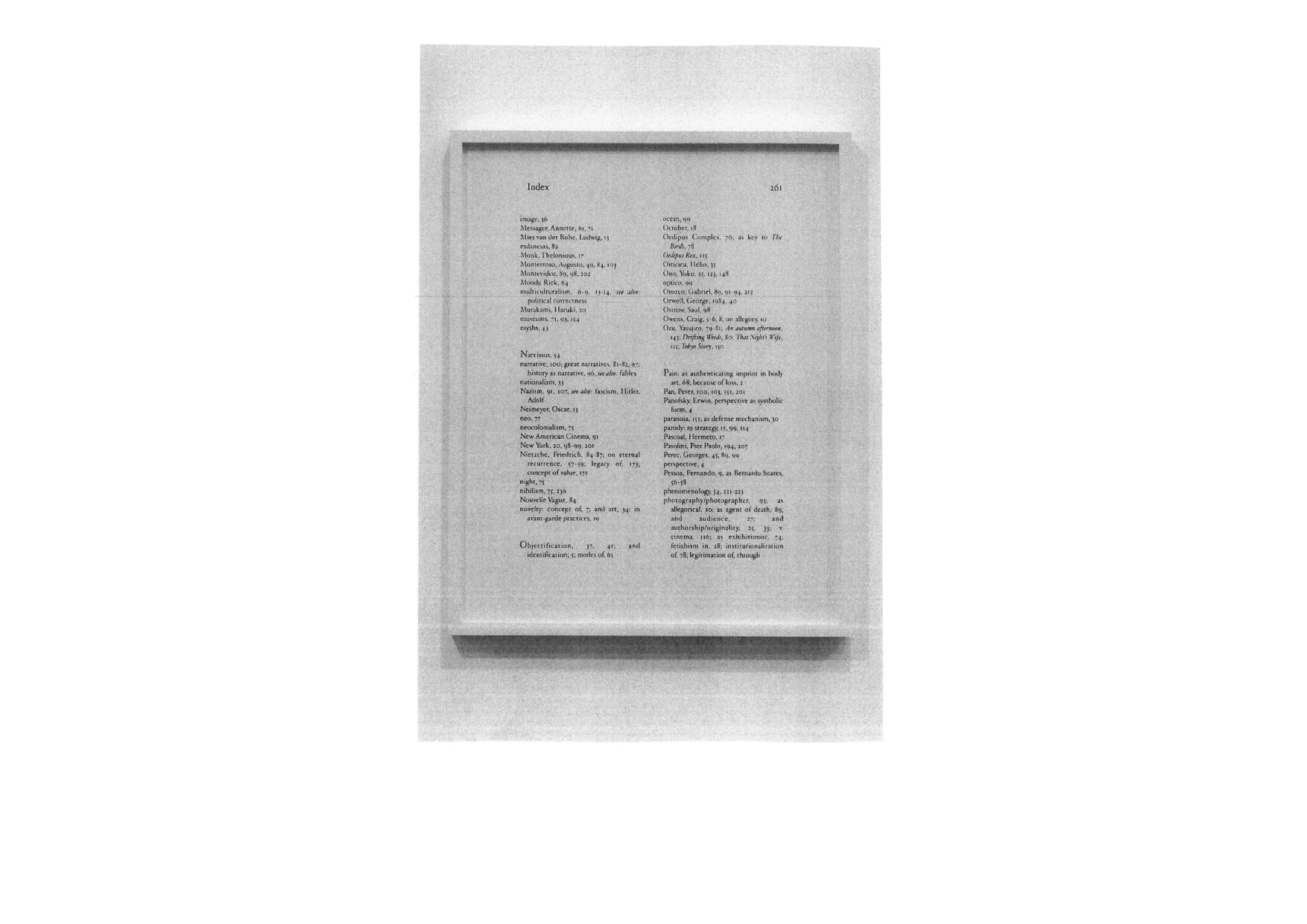indexing

see also human reading, inter-depending, scanning
Most books contain an index. Most books are also indexed in some type of cataloguing system, to present the collection and inter-relationships between the texts contained within, and those outside of the library. This set of cards is an unbound index, which can be reshuffled, added to and reduced as the reader pleases. Reducing a text to an index opens it up for the reader to complete it as they read, drawing on what they have read before and creating a mental network of associations. A book is a hyper-index, forever pointing outwards to other books, libraries, readers and writers. I use my index finger to trace over the text, moving down the page as my eyes scan for keywords.
Image: Alejandro Cesarco, Index, exhibited at the gallery formerly known as Witte de With Contemporary, September 2019 – January 2020
